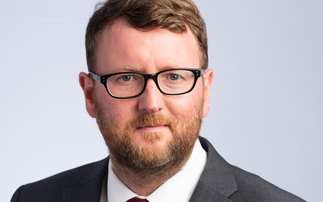Master trusts’ investment strategies have grown and become more sophisticated over the last three years, but “growing pains” are hindering progress, according to the Defined Contribution Investment Forum (DCIF).
The forum's report, Growing Pains: Master trusts beyond auto-enrolment, looked at the investment designs of master trusts and how the sector has evolved since its last report in 2017. It also looked at performance data and how master trusts' default funds fared in the early months of the Covid-19 pandemic.
The report - which collected data from 18 master trusts - found they have made huge progress but have been hindered by "growing pains" including cost constraints, regulatory uncertainty, and the impact of the pandemic.
The report found asset allocations have become much broader and more divergent since 2017, with many moving beyond simply tracking market-capitalisation indices in their equity holdings, and a growing use of active strategies within fixed income.
It also revealed ESG has quickly risen up master trusts' agendas over the last three years. In the DCIF's 2017 report, it found ESG and ethical considerations were mostly relegated to self-select funds.
Now, most master trusts have made some allocations to ESG strategies in their default funds and plan to do more. To date, they have particularly focused on climate change, but the forum revealed interest is growing in other areas, such as impact investing.
Eight of the 18 master trusts questioned said they use 50% of more ESG strategies in default funds, while just three said they do not use any.
Other issues hindering the progress of master trusts include price competition, which the forum suggested means investment budgets are often determined by what can be afforded rather than what may deliver the best outcome.
To aid master trusts in continuing progress, the DCIF has urged the government not to reduce the charge cap below its current level or seek to include transaction costs within it as doing so, the forum said, is unlikely to improve competition and will only constrain investment development further.
It also stated that the Department for Work and Pensions and The Pensions Regulator need to clarify their requirements for occupational schemes in relation to retirement pathways.
It also recommended master trusts and other DC schemes should be encourage to separately disclose what is spent on investment versus other services to allow members to better asses value, and urged the industry and government to work together to develop new approaches to enabling master trusts to access illiquid investments efficiently and affordably.
Report author Richard Parkin said: "Master trusts have made a huge amount of progress since 2017, which is really encouraging. They have thoughtfully worked on their ESG approaches and should be congratulated on how much they have achieved. However, cost challenges make it difficult for master trusts to invest in the full range of asset classes they would like to access. The good news is that they are working with government and industry to overcome these barriers."
DCIF chairwoman Hilary Inglis added: "It is hugely encouraging to see that master trusts have evolved so much since 2017. Some of the challenges that they raise are important considerations for the wider industry. For instance, as investment managers, we will take into consideration their comments around investment design for DC.
"As a group of investment managers, we are committed to looking after the needs of master trusts and end investors to the very best of our abilities. We look forward to continuing the conversation with master trusts to ensure that they are able to access best-in-class DC investment strategies."








